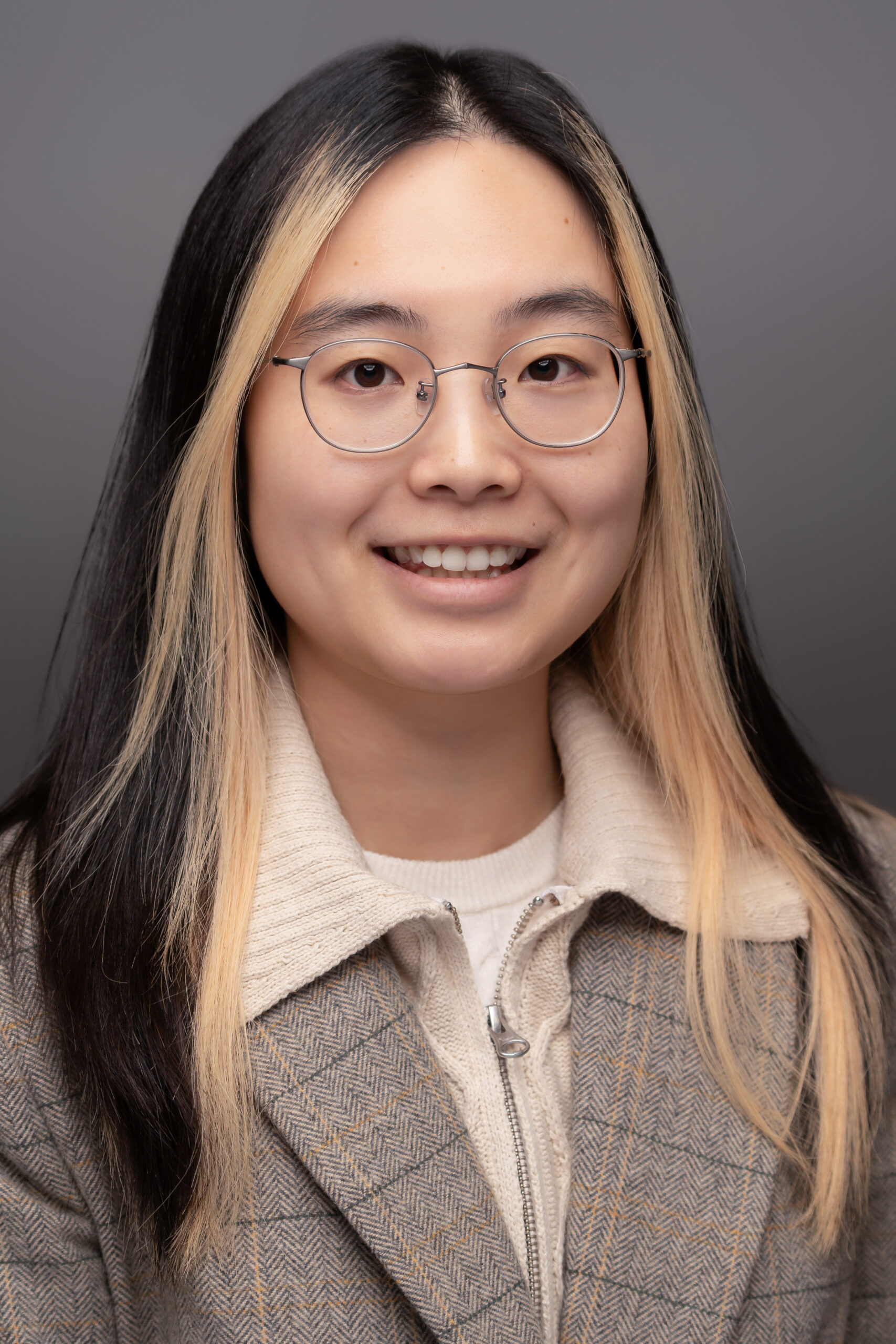
Wenting Peng is a first-year PhD in Nursing Science student and one of the de Tornyay Center for Healthy Aging’s predoctoral scholars. She is also one of the 2024-2025 UW Center for Statistics and the Social Sciences Blalock Fellows. Her mentor from her graduate program is former de Tornyay Center scholar Minhui Liu, PhD, RN.
Peng’s research areas of interest include aging-related health concerns. Peng also recently presented several poster and podium presentations on healthy aging topics at the Gerontological Society of America’s Annual Scientific Meeting, a conference that draws over 3700 attendees from various disciplines in aging.
What are your research areas of interest?
My research can be divided into two parts. The first is using publicly available data sets to examine the risk factors or protective factors for physical function or cognitive function in older adults. The second part is implementation science. I am very interested in developing and implementing evidence-based interventions, especially innovative interventions for older adults to improve their well-being.
What made you interested in studying those two topics?
For data science, it’s that I can get a sense of achievement during the process. Finding a specific research question is very interesting, and trying your best to use this data to answer that is very inspiring, especially when the results have implications for nursing science and nursing practice.
For implementation science, it’s because I can’t only focus on the data science, because it’s very abstract for the older adults. I want to make it more practical for them. I want to have my own contributions or develop something truly effective for them.
Are there particular types of interventions you’re interested in?
Previously, I was more interested in exercise-based interventions, but after I started my doctoral program at UW, many professors are doing different technology-based interventions which is appealing to me. These interventions also have shown their effectiveness in improving well-being in the targeted population. I am interested in technology-based interventions, and in the future, I may want to combine these two components and explore what can be effective for older adults.
Why are you interested in technology and older adults? Why do you think this area is important?
Older adults face issues with technology inequality. For example, when I went into the hospital, the hospital required the older adults to register online before they got direct care in the hospital. But many of the older adults don’t know how to do that. It is impossible and unfair to stop the hospital or all care services from using technology. What I want to do is try to let the older adults adapt themselves into this digital health world and use digital technology to help them live better. This is the reason I want to make a switch to the technology-related area.
When did you first start doing research?
In my bachelors’ studies, I had the opportunity to do research.
What made you want to do research during your undergraduate?
That research I did in my bachelors program was related to aging. And that made me interested in doing aging research in my graduate program.
My interest in studying aging is related to my grandparents. I am a ‘left-behind child’ because my parents needed to work in a different city when I was a child. So my grandparents raised me. At that time, we lived in a rural area, and the health services were not well developed. My grandpa had severe heart disease, but he decided not to take any action to delay its progress. There were many older adults like my grandpa in my village. This kind of health struggle is very common among older adults living in rural area, so I wanted to do something for them in the future. When I got into the bachelor’s of nursing program, I found that there was an opportunity for the bachelor’s students to do some research on a topic related to aging. At that time, I was shadowing as a nursing student, and I found that many clinical healthcare providers were talking about a new term – Internet plus nursing and wanted to apply it to older patients. However, I talked to some older patients and found they never heard of it before. Thus, I had an idea to explore the recognition and acceptability of the Internet plus nursing in older adults. After that, I found some college students also interested in that and a professor to guide us. So, I tried and succeeded in getting funded. That’s why I wanted to do that.